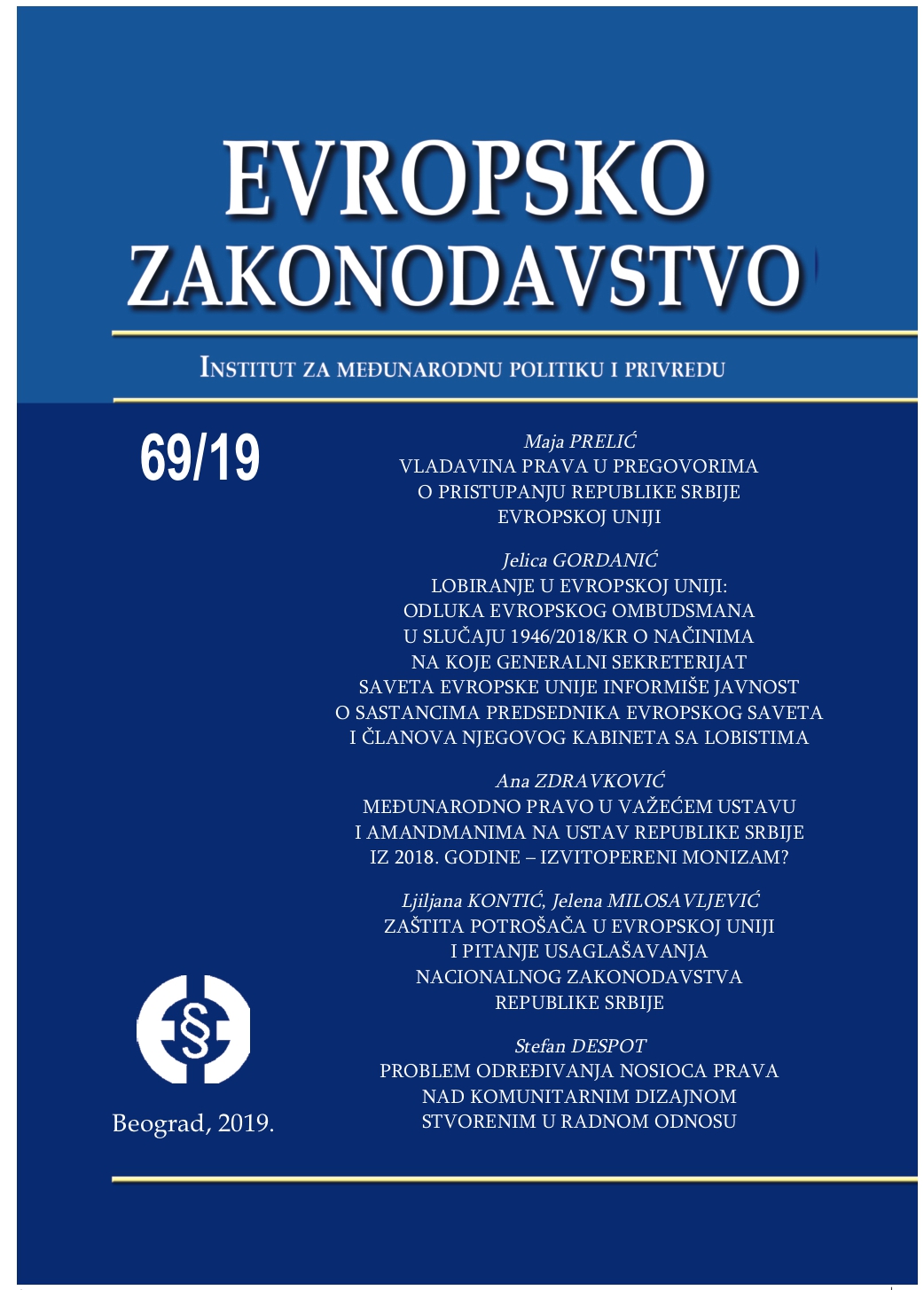Zaštita potrošača u Evropskoj uniji i pitanje usaglašavanja nacionalnog zakonodavstva Republike Srbije
Consumer protection in the European Union amnd the question of harmonizing Serbian national legislation
Author(s): Ljiljana Kontić, Jelena MilosavljevićSubject(s): Law, Constitution, Jurisprudence, EU-Legislation
Published by: Институт за међународну политику и привреду
Keywords: consumer protection;directives;legislation;harmonization;European Union;Serbia;
Summary/Abstract: The main aim of this paper was to analyze consumer policy in the European Union (EU) from its beginnings to the current state of consumer protection through consideration of the regulations adopted in the EU in the last decades, and their incorporation into the national legislations of the member states and candidate countries to join the EU. Considering the fact that the Republic of Serbia has entered the procedure of admission to the EU membership, it is necessary on this path to fully comply with the policies and regulations of the Union. Consumer protection has always been an area of great attention, interest and engagement. First of all, of the European Economic Community (EEC) and later its legal successor, the European Union (EU), with the aim of guaranteeing all consumers and users of services in the EU the same protection against risks and threats to their interests, as well as to increase their ability to protect their interests. There are several types of sources of law in the EU legislation, especially the Directives and Recommendations. In this paper, the Directive 2011/83 / EU on consumer rights has been analyzed. Since 2005, all EU directives have maximally protected consumer rights without exception. The importance of implementation of the consumer protection solution envisaged in the EU to the legal system of the Republic of Serbia was presented, too. The relevance and benefits of implementation into national legislation are in particular: better knowledge of consumers’ rights, which are fully informed and educated; consistent implementation of consumer protection regulations implemented by state bodies for protection and efficient out-of-court procedures with low costs; embedding consumers' interests in significant sectoral policies, primarily in the energy, transport and services sector, telecommunications, digital technology, banking, etc. It can be noted that there is significant compliance of Serbian legislation, which protects consumers' rights with EU regulations, however, all changes that are happening in this area in the EU should be followed, and the harmonization of Serbian policies and regulations with them should continue. It is particularly important to consistently apply the regulations to specific life situations in the domain of consumer protection and the construction of mechanisms, as well as the infrastructure for this application.
Journal: Европско законодавство
- Issue Year: 2019
- Issue No: 69
- Page Range: 53-68
- Page Count: 16
- Language: Serbian

